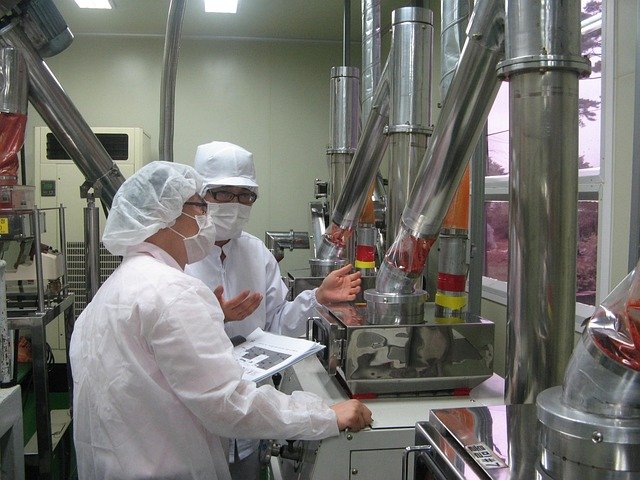Packing Jobs: A Comprehensive Guide to Factory and Manufacturing Work
Packing jobs play a crucial role in the manufacturing and distribution industries. These positions involve carefully preparing products for shipment, ensuring they are properly protected and organized for safe transport. From small items to large machinery, packers are responsible for maintaining product quality and optimizing shipping efficiency. This article explores the various aspects of packing jobs, including responsibilities, skills required, and potential career paths in the factory and manufacturing sectors.

Key duties often include:
-
Inspecting products for defects before packaging
-
Selecting appropriate packaging materials based on product requirements
-
Operating packaging machinery or using manual packing techniques
-
Labeling packages with relevant information such as contents, destination, and handling instructions
-
Maintaining a clean and organized work area
-
Following safety protocols and quality control standards
Packing workers may also be responsible for inventory management, record-keeping, and collaborating with other departments to ensure smooth operations throughout the production and shipping process.
What skills and qualifications are needed for packaging work?
While many packing jobs do not require formal education beyond a high school diploma or equivalent, certain skills and qualities are essential for success in this field. Employers typically look for candidates who possess:
-
Attention to detail: Accurately following packing instructions and spotting potential issues is crucial.
-
Physical stamina: The job often involves standing for long periods and lifting heavy items.
-
Manual dexterity: Precise hand movements are necessary for efficient and careful packaging.
-
Time management: Meeting production quotas and deadlines is a common requirement.
-
Teamwork: Collaborating with colleagues in a fast-paced environment is essential.
-
Basic math skills: Counting, measuring, and simple calculations may be part of daily tasks.
-
Safety awareness: Understanding and adhering to workplace safety protocols is critical.
Some positions may require additional qualifications such as forklift operation certification or experience with specific packaging equipment. As technology advances, familiarity with computer systems and inventory management software is becoming increasingly valuable in the field.
How does the packaging industry contribute to manufacturing and the economy?
The packaging industry plays a vital role in the manufacturing sector and the broader economy. Effective packaging not only protects products during transportation but also serves as a marketing tool and ensures compliance with regulations. The industry’s contributions include:
-
Job creation: Packaging operations provide employment opportunities across various skill levels.
-
Innovation: Continuous improvements in packaging materials and techniques drive efficiency and sustainability.
-
Supply chain support: Proper packaging is essential for seamless logistics and distribution.
-
Product integrity: Packaging preserves product quality and extends shelf life, reducing waste.
-
Brand differentiation: Unique packaging designs help products stand out in competitive markets.
-
Environmental considerations: The industry is increasingly focused on developing eco-friendly packaging solutions.
As consumer demands and environmental concerns evolve, the packaging industry continues to adapt, creating new opportunities for workers and businesses alike.
What are the career prospects and advancement opportunities in packing jobs?
While entry-level packing jobs may start with basic responsibilities, there are several paths for career advancement within the field. As workers gain experience and demonstrate reliability, they may progress to roles such as:
-
Team leader or supervisor: Overseeing a group of packers and coordinating daily operations.
-
Quality control inspector: Ensuring packaging meets company and industry standards.
-
Logistics coordinator: Managing the flow of packaged products through the supply chain.
-
Packaging designer: Developing new packaging solutions for improved efficiency and product protection.
-
Production manager: Overseeing entire packaging departments or facilities.
Additionally, skills gained in packing jobs can be transferable to other areas of manufacturing, warehousing, or logistics. Some workers may choose to specialize in particular types of packaging, such as hazardous materials or fragile goods, which can lead to higher-paying positions.
How is technology impacting the packaging workforce?
Technology is rapidly transforming the packaging industry, introducing new tools and processes that affect workers’ roles and responsibilities. Key technological developments include:
-
Automated packaging systems: Reducing the need for manual labor in some tasks.
-
Robotic assistance: Collaborative robots working alongside human packers to increase efficiency.
-
Smart packaging: Implementing sensors and tracking devices for improved supply chain management.
-
Digital printing: Enabling on-demand, customized packaging production.
-
Augmented reality: Assisting workers with visual guides for complex packing procedures.
While these advancements may reduce the demand for certain manual tasks, they also create new opportunities for workers to develop technical skills and take on more specialized roles. Adapting to technological changes and pursuing ongoing training can help packaging workers remain competitive in the evolving job market.
In conclusion, packing jobs offer a vital entry point into the manufacturing and distribution industries. While the work can be physically demanding and repetitive, it provides opportunities for skill development and career advancement. As the packaging sector continues to evolve with technological innovations and environmental considerations, workers who stay adaptable and embrace new skills will find themselves well-positioned for long-term success in this essential field.




